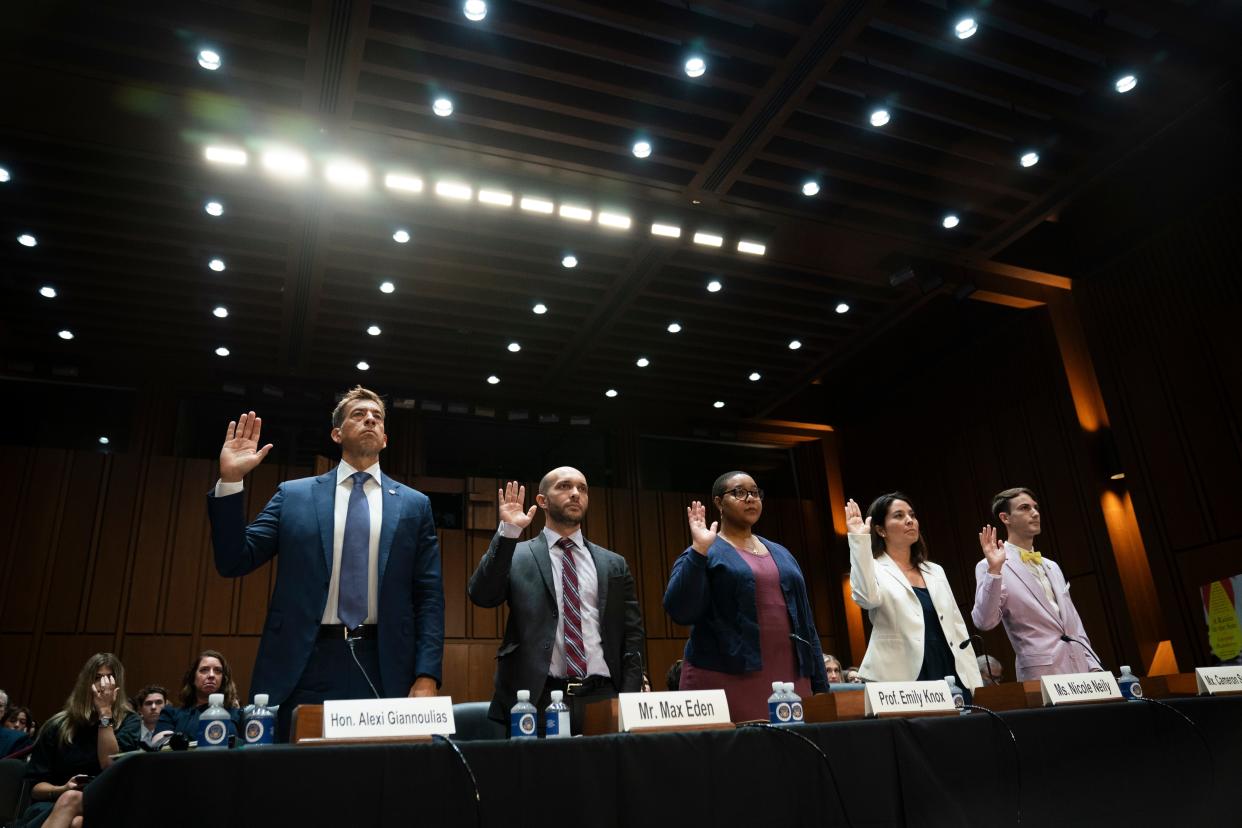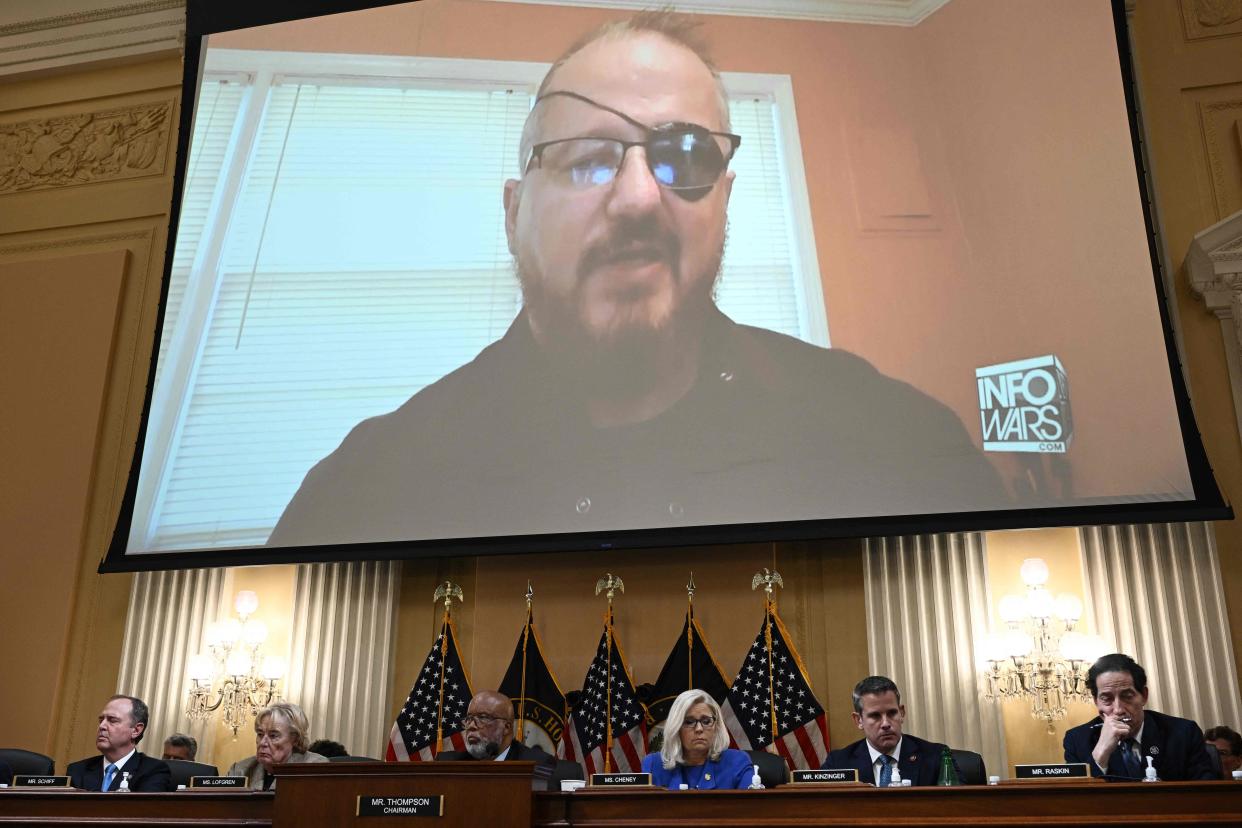Elon Musk tweeted about a college student. Now the billionaire is facing a libel lawsuit
Elon Musk is being sued over amplifying posts that falsely identified a young Jewish man as a neo-Nazi on X, the platform formerly known as Twitter, which Musk owns. USA TODAY has a deep dive investigation into a website that has become the go-to resource for book banning attempts. And a new report examined Venmo records to find that Oath Keepers kept paying dues for months after the Jan. 6 insurrection.
It’s the week in extremism.

Musk faces libel suit after tweets about neo-Nazi brawl
An activist attorney filed a lawsuit against the world’s richest man, Elon Musk, this week, claiming Musk defamed a young graduate by suggesting the man was a neo-Nazi who engaged in a fight with another right wing extremist in Portland earlier this year.
The lawsuit, filed in Texas on Monday, accuses Musk of amplifying tweets and restating claims suggesting that 22-year old Ben Brody, who is Jewish, was involved in a brawl between two right wing extremist groups in downtown Portland in June.
The lawsuit cites Musk’s “serial pattern of slander” and his “pattern of reckless false statements, promotion of disinformation, and denial of neo-Nazi violence.” It claims Musk libeled Brody by engaging with anonymous tweets claiming Brody was a left-wing activist or federal agent masquerading as a right-wing protester.
The tweets are hardly Musk’s first engagement with right-wing conspiracy theories, and the lawsuit lays out the billionaire’s recent history, including doubting the Allen, Texas, mass shooter’s ties to neo-Nazism.
The lawyer who filed the suit, Mark Bankston, successfully sued conspiracy theorist Alex Jones earlier this year on behalf of parents of children who died in the 2012 Sandy Hook school shooting, whom Jones defamed.

Book bans in America increasingly driven by one website
A deep-dive USA TODAY investigation published Thursday looks at the role of BookLooks.org, a bare-bones website created last year that has become the go-to resource for people looking to ban books from school and public libraries. We found that BookLooks reviews have been used as evidence for hundreds of book ban challenges in at least 12 states. The site has close connections to the right-wing organization Moms for Liberty.
BookLooks rates books from zero to five, and opines on whether the books are suitable for children or not. The ratings system is focused on sexuality and gender and reviews contain extracts from books, with no context.
The site provides no information on BookLooks about who creates the reviews, or what their qualifications are.
Librarians and experts on child literacy told USA TODAY book ratings like those on BookLooks are unhelpful and counter-productive. The focus on sexuality and “alternative genders” also risks alienating some members of a school community, they said.
“What this says to me is that people don't trust the expertise of librarians — they say, this random website knows better than you do, even though you have schooling and this is your profession,” Emily Knox, an associate professor who studies intellectual freedom and censorship at the University of Illinois Urbana-Champaign told USA TODAY.
BookLooks’ founder, who wouldn’t agree to an interview with USA TODAY, said by e-mail that she doesn’t intend for the site to be used for book bans, but knows that others use it for that purpose. “We aren’t going to try to discourage that, nor do we feel we should have to,” she said.

Venmo investigation: Oath Keepers kept paying dues long after Jan. 6
An investigation published late last week by The Guardian examines records from the payment site Venmo and details how members of the extremist group the Oath Keepers continued paying dues to the group’s founder, Stewart Rhodes, for months after the Jan. 6 insurrection. Rhodes is currently serving 18 years in prison for his role in a seditious conspiracy connected to Jan. 6.
The Guardian reports: “Those who made payments to an Oath Keepers leader on Venmo include an engineer whose employer provides satellite technology to US government agencies including the Department of Defense (DoD) and the Department of Homeland Security, a former Department of Homeland Security employee whose tenure at the agency overlapped with his membership in the group, and a 2022 candidate for the Wyoming state senate.”
The investigation takes advantage of publicly accessible records maintained by Venmo, an application and website that facilitates individuals sending each other money.
The Guardian identified a senior member of the Oath Keepers who was collecting dues for the organization on Venmo, then identified some of the people paying those dues.
The Oath Keepers have largely fallen apart since the incarceration of Rhodes and other senior leaders of the group, experts told USA TODAY earlier this year.
Statistic of the week: 24
That’s how many civil rights organizations signed a letter Wednesday to Homeland Security Secretary Alejandro Mayorkas, demanding he take action on the threat of domestic extremism within the Department of Homeland Security.
As USA TODAY reported last month, Mayorkas never responded to a similar letter from dozens of members of Congress.
This article originally appeared on USA TODAY: Elon Musk libel lawsuit: Here's what 22-year-old plaintiff claims
